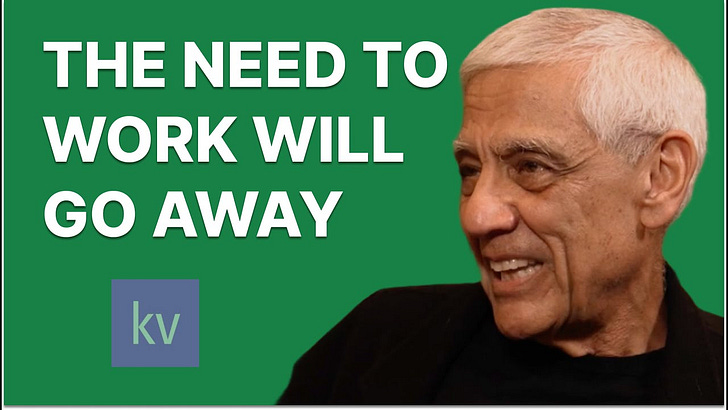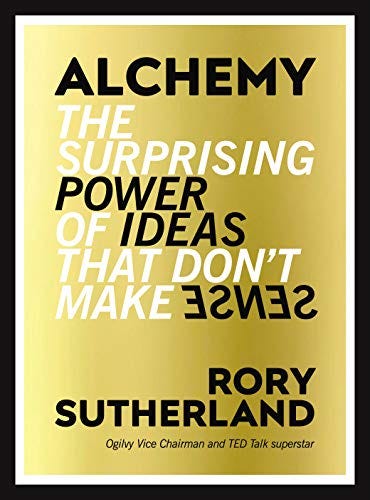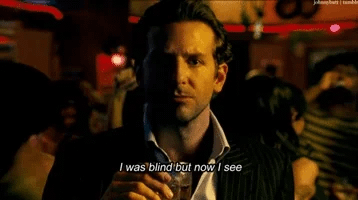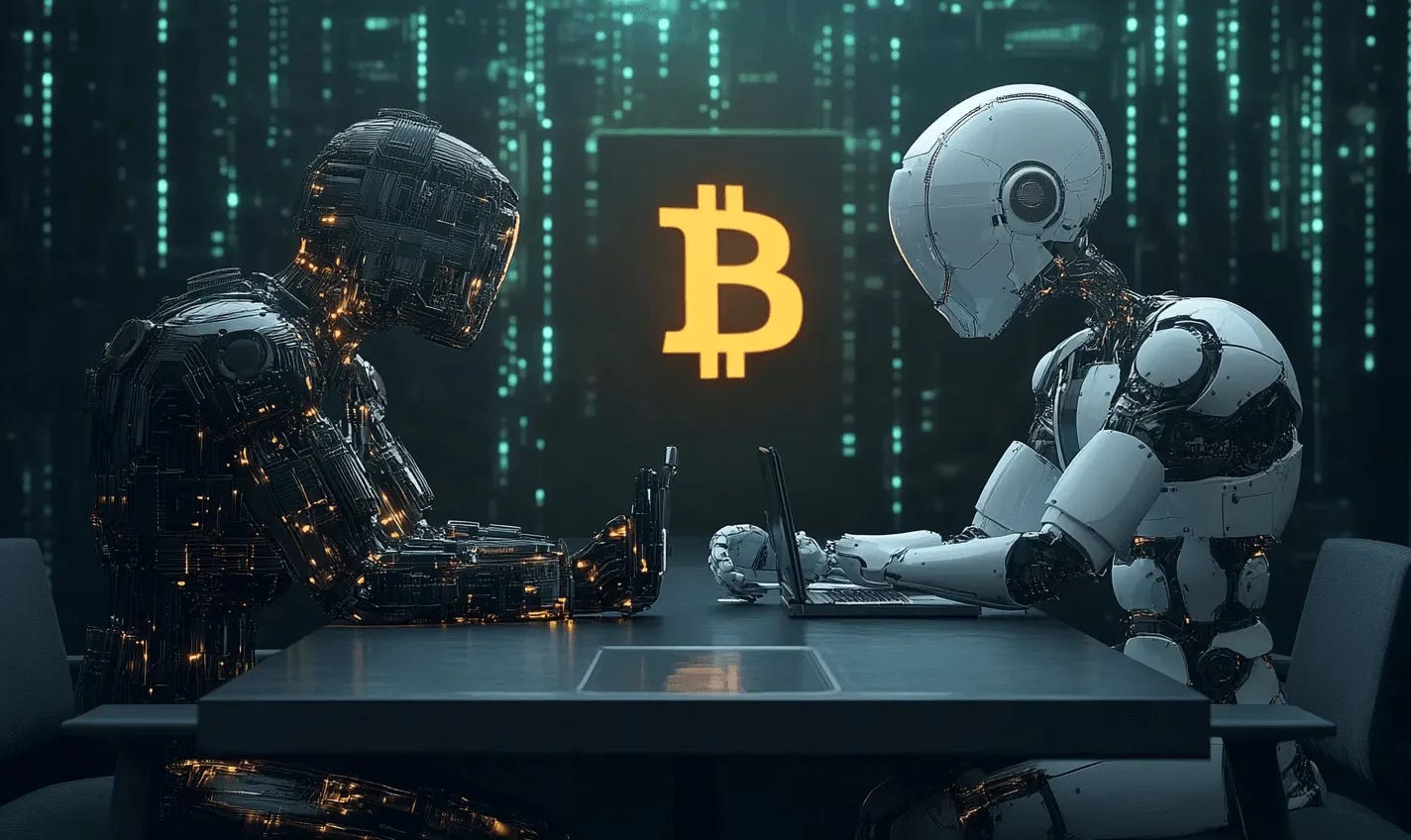The Curious Mind: Rory Sutherland on Choosing, Burkeman on Meaningful Achievement, Khosla On The Future, George Church on Biology, When Bitcoin and AI collide, Quantum Computing Primer...
July 10, 2025
You are a smart curious person but short on time and surrounded by noise. The Curious Mind tries to offer the best signal to noise ratio across markets, technology and the good life. We hope to even surprise and inspire you with new beautiful ideas.
If you missed last week’s discussion: From Struggle To Growth, Brain Health Secrets, The Future of Life, Lessons of WWII, Tokenisation & Stable Coins....
Believe it or not, that “♡ Like” button is a big deal – it serves as a proxy to new visitors of this publication’s value. If you got value out of reading, please let others know!
I will keep summer emails a little shorter.
Quotes I Am Thinking About:
“What if the way we perceive a problem is already part of the problem?”
- Slavoj Žižek
“It is an undoubted truth, that the less one has to do, the less time one finds to do it in. One yawns, one procrastinates, one can do it when one will, and therefore one seldom does it at all.”
- Lord Chesterfield
“While we are postponing life speeds by.”
- Seneca
“The cave you fear to enter holds the treasure you seek."
- Joseph Campbell
"We are what we repeatedly do. Excellence, then, is not an act, but a habit."
- Aristotle
A. A Few Things Worth Checking Out:
1. Why Choose When You Can Do Both?
Rory Sutherland is one of my favourite people because he always helps me see the world differently.
Rory is the Vice Chairman of Ogilvy, where he has worked since 1988. This attractively vague job title has allowed him to form a behavioural science practice within the agency dedicated to uncovering the hidden business and social possibilities which emerge when you apply creative minds to the latest thinking in psychology and behavioural science.
He is the author of three books: the best-selling Alchemy - The Surprising Power of Ideas Which Don't Make Sense (we discussed it in Sept 2020); The Wiki Man; and Transport For Humans.
He did the opening talk at Nudgestock a few weeks back.
The 3 BIG IDEAS:
Stop Making False Either/Or Choices: The Beatles-Decca story reveals a fundamental business mistake: creating artificial constraints that force either/or decisions when "both/and" solutions are often better. Mike Smith at Decca wasn't wrong to choose Brian Poole and the Tremeloes - he was wrong to accept the arbitrary rule that he could only sign one band. This happens everywhere in business because it feels more "rational" to optimize for one thing, but the best opportunities often come from doing multiple things simultaneously rather than forcing false trade-offs.
Marketing Requires Different Math Than Operations: Most businesses try to measure marketing success using the same metrics they use for operations - but that's like judging exploration using exploitation rules. Marketing operates in a "fat-tailed" world where rare events have massive impact (like Starbucks' Pumpkin Spice Latte, which tested poorly but made half a billion dollars). Traditional ROI calculations miss this entirely because they only capture immediate costs, not long-term value creation. You need 20% of your effort focused on unpredictable exploration, just like bees that ignore the waggle dance and randomly search for new opportunities.
The Greatest Power Is Changing How People See, Not What They See: The most powerful business intervention isn't changing the world - it's changing how people perceive the world. A simple reframe can create massive value: Hotels now charge premiums for "pool-adjacent" rooms without changing anything physical. When you shift someone's mental framework (their paradigm), their behavior changes automatically, which then changes everything else.
2. The Path To Meaningful Achievement:
Thoughtful piece by the author of one of my favorite books: Four Thousand Weeks. argues that the most effective way to live a meaningful and productive life is to deeply understand that you don't actually need to achieve anything at all.
He contrasts two approaches to action: the common "insecure overachiever" mindset where people accomplish things because they believe they must earn the right to feel good about themselves, versus acting from a place of already feeling fundamentally okay. The first approach is soul-crushing because each success becomes a new minimum standard, turning achievements into sources of oppression rather than joy. Most productivity advice caters to this anxious mindset, promising that enough efficient action will eventually make you feel worthy.
The alternative approach involves taking action not from insecurity but from genuine enjoyment of being alive and wanting to use your talents meaningfully. This doesn't require abandoning ambition - in fact, it can make you more effectively ambitious because your goals become expressions of existing wellbeing rather than desperate attempts to reach it. He suggests that simply experimenting with the idea that you could "just do the minimum" and still deserve a relaxed, enjoyable life can be remarkably liberating. From this more peaceful state, a different kind of action emerges - one that's equally energetic and productive but far more alive and enjoyable.
3. Predicting The Future
Vinod Khosla is an entrepreneur, investor and technologist. In 2004, Vinod formed Khosla Ventures to focus on both for-profit and social impact investments that have included OpenAI, Stripe, DoorDash, Commonwealth Fusion Systems and many more.
After graduating college, Vinod co-founded Daisy Systems, the first significant computer-aided design system for electrical engineers, which led to an IPO. He later went on to co-found Sun Microsystems in 1982, serving as its first chairman and CEO.
After joining Kleiner Perkins Caulfield and Byers (KPCB), Vinod incubated the idea for Juniper Networks to take on Cisco System’s dominance of the router market, a company that would give KPCB a 2,500x return on its early investment.
He spoke to Jake Altman (Sam’s brother) on the Uncapped podcast.
The 5 BIG IDEAS:
The End of Work as We Know It: We're approaching a fundamental shift from scarcity to abundance that will eliminate the economic necessity of work. Within 5 years, AI will handle 80% of economically valuable jobs, and by 2040, we'll live in an era where people pursue activities for fulfillment rather than survival. This isn't just about automation—it's about creating enough productivity and goods that society can support everyone without traditional employment. The transition will be disruptive through the 2030s, but ultimately liberating, giving people time for relationships, creativity, and personal growth rather than what Khosla calls "servitude."
AI Will Reconstruct Every Industry from First Principles: This isn't gradual improvement—it's complete reinvention. Khosla argues we're seeing the largest innovation cycle in 50+ years, where every job, every material process, and every Fortune 500 company will be fundamentally restructured or replaced by 2040. The changes will compound so dramatically that most existing corporations won't survive in their current form. Healthcare systems will be redesigned around unlimited free medical expertise, education will be revolutionized by AI tutors, and entire economic models will shift as AI interns become more capable than their human supervisors.
Physical Intelligence Through Humanoid Robots: The next breakthrough after language AI will be embodied intelligence—robots that learn and adapt rather than follow programming. Within 2-3 years, we'll see the "ChatGPT moment" for robotics, where humanoid robots become practical for real-world tasks. By the 2030s, these robots will be as common as cars, handling everything from household tasks to farm work to manufacturing. The key insight is that humanoid form factor is essential for scale and cost reduction, and the intelligence barrier (not hardware) is what's currently limiting progress.
Abundant Clean Energy and Democratized Healthcare: Two massive sectors will be completely transformed through technological breakthroughs. Energy will become cheap and unlimited through fusion and super-hot geothermal technologies that drill at 450°C to access 6-10x more power per well. Healthcare will see AI provide better medical diagnosis and treatment than human doctors (88% vs 73% accuracy in studies) at essentially zero cost globally. These aren't incremental improvements—they're order-of-magnitude changes that make energy and medical expertise essentially free resources rather than expensive services.
Innovation Only Comes from Outsiders, Never Incumbents: Perhaps the most counterintuitive insight across 40 years of venture capital, Khosla has never seen major innovation come from established players in any field. Amazon beat Walmart, Netflix beat traditional media, Tesla beat Detroit automakers, and even COVID vaccines came from startups rather than Big Pharma. Large companies optimize for reducing failure risk, while breakthrough innovation requires maximizing the potential for transformative success. This pattern suggests that the massive changes ahead will come from new companies and entrepreneurs, not from adapting existing institutions.
The Meta-Insight: These five trends represent a convergence point where multiple exponential technologies—AI, robotics, energy, biotechnology—will simultaneously mature and intersect, creating changes so profound that our current economic and social systems will need fundamental restructuring rather than incremental adaptation. Khosla suggests this transformation is not just likely but inevitable, with the only uncertainty being timing rather than outcome.
4. A Billion Years of Evolution in a Single Afternoon
spoke to the Godfather of Synthetic Bio on De-Aging, De-Extinction, & Weaponized Mirror Life, George Church.
George is an American geneticist, molecular engineer, chemist, serial entrepreneur, and pioneer in personal genomics and synthetic biology. He is the Robert Winthrop Professor of Genetics at Harvard Medical School, Professor of Health Sciences and Technology at Harvard University and Massachusetts Institute of Technology, and a founding member of the Wyss Institute for Biologically Inspired Engineering at Harvard University!!!
The 5 BIG IDEAS:
We Might Beat Death by 2050: Here's the wildest prediction, if you can survive the next 25 years, you might live forever. Church thinks we're hitting "aging escape velocity"—where technology extends your life faster than you age. The breakthrough? Aging is basically your cells getting old, and we're learning to replace them with fresh ones while keeping your memories and personality intact. It's like the Ship of Theseus, but for your entire body. Most people reading this have a real shot at making it to 2050, and from there, who knows how long we could live.
Complex Biology Has Simple Cheat Codes: Think changing height requires editing 10,000+ genes? Nope—just tweak growth hormone and you can go from tiny to giant. Church discovered that biology has these incredible "master switches" where changing just a few genes can transform entire organisms. They've already used this to create dire wolves and are working on woolly mammoths. The mind-bending part? This might work for intelligence, disease resistance, or any trait you can imagine. Instead of complex genetic overhauls, we might just need to find the right biological "cheat codes."
Scientists Could Accidentally End the World (With Mirror Life): Here's the stuff of nightmares: "mirror life"—organisms built backwards at the molecular level. Church helped write a paper warning that if these ever escaped a lab, they could potentially kill all life on Earth. Our immune systems wouldn't recognize them, ecosystems couldn't stop them, and they could spread like an unstoppable plague. The scary part? As biotech gets cheaper and easier, it becomes more likely that someone, somewhere, will create this by accident or on purpose. It's an existential risk we've never faced before.
A $100 Test Could Prevent Most Genetic Diseases: While everyone obsesses over expensive gene therapy, Church says we're ignoring a simple solution sitting right in front of us. Genetic counseling—basically testing couples before they have kids—could eliminate most serious inherited diseases for about $100 per person. One community has been doing this since 1985 and virtually eliminated genetic diseases among their children. The return on investment is insane: spend $100 to save millions in lifetime medical costs and prevent tremendous suffering. Yet hardly anyone talks about it.
Biology Will Become the Ultimate 3D Printer: Forget silicon chips—the future of manufacturing is living systems. Biology already builds things at 0.4 nanometer precision (a billion times denser than our best electronics) and could soon manufacture anything we can imagine. Picture bacteria that build smartphones, organisms that create room-temperature superconductors, or self-replicating factories that can copy themselves every 30 minutes. By teaching biology to use the entire periodic table and combining it with AI, we might turn cells into the most powerful manufacturing platform ever created.
5. The Two Singularities:
This was a thoughtful piece titled: Twin Singularities: Bitcoin & AI by , where he argues that:
The Intelligence Explosion is Inevitable and Imminent. AI has moved beyond simple pattern recognition to building systems that can improve themselves through recursive self-improvement. When an AI becomes smart enough to design a better version of itself, the progress curve goes from linear to exponential to vertical - creating a "cognitive singularity" where machine intelligence surpasses human thought as the dominant force on Earth. This isn't science fiction; it's an engineering problem we're actively solving, and the feedback loops are already accelerating toward an intelligence explosion that will be "humanity's last invention."
Bitcoin Represents a Monetary Singularity with Fixed Mathematical Scarcity. Unlike every previous form of money, Bitcoin has absolute, provable scarcity hardcoded into its protocol - there will only ever be 21 million coins, enforced by cryptographic proof rather than human promises. This creates a "financial black hole" that will inevitably attract capital fleeing from inflationary fiat currencies. As trust in traditional monetary systems erodes, Bitcoin's fixed supply acts as a gravitational constant, fundamentally shifting economic incentives from spending and debt to saving and capital accumulation while returning financial sovereignty to individuals.
The Convergence of AI and Bitcoin Will Destroy Institutional Intermediaries. When superintelligent AI meets mathematically sound money, they will create an economy of autonomous agents transacting seamlessly on the Bitcoin network without human intermediaries. This fusion replaces trust in corruptible human institutions (banks, governments, corporations) with cryptographic proof and programmable contracts. The result is the end of the "institutional age" - hierarchical control structures dissolve into decentralized networks of voluntary cooperation, unleashing unprecedented prosperity by freeing civilization from the twin constraints of limited human cognition and unsound money.
6. Quantum Computing: A Curious Primer
We wrote a 13-chapter primer on Quantum Computing for paid subscribers, here are the first 2 chapters.
We are living through quantum computing's most consequential decade—caught between extraordinary promise and stubborn reality. After years of lab demonstrations, 2025 marks the year quantum began its awkward adolescence: no longer pure research, not yet transformative technology.
Here's my honest, 13-part multi-media primer for anyone who wants to understand what quantum computing really is, where it stands today, and how to think clearly in a field swimming in both breakthrough science and breathless hype.
Let’s begin with the great Professor Michio Kaku on why Quantum computing is the next revolution.
1. The Origin Story: When Physics Met Computation
Quantum computing emerged from a physicist's frustration.
In 1981, Richard Feynman observed that classical computers struggle to simulate quantum systems—the very foundation of chemistry, materials science, and much of physics. His radical proposal: build computers that operate on quantum principles themselves.
The theoretical foundation came quickly. Peter Shor's 1994 algorithm proved quantum computers could factor large numbers exponentially faster than classical ones—threatening all current encryption.
Lov Grover's 1996 algorithm showed quantum speedups for searching unsorted databases. But the physics remained brutally difficult.
It took until 2019 for Google's 53-qubit Sycamore processor to demonstrate "quantum computational supremacy"—performing a specific (if artificial) calculation faster than the world's best supercomputers.
Then in 2024, IBM's quantum computer helped solve a physics problem that classical machines couldn't touch, marking the first scientifically meaningful quantum advantage.
The shift from "can we build it?" to "what can we build with it?" has begun.
2. How Quantum Actually Works
Three quantum mechanical principles make these machines fundamentally different:
Superposition allows qubits to exist in combinations of 0 and 1 simultaneously. While a classical bit is definitively one or the other, a qubit can be 30% |0⟩ and 70% |1⟩—enabling parallel exploration of solution spaces.
Entanglement creates spooky correlations between qubits. Measuring one instantly affects its entangled partners, regardless of distance. This allows quantum computers to process information in ways impossible for classical systems.
Interference amplifies correct computational paths while canceling incorrect ones. Quantum algorithms are choreographed interference patterns that guide the system toward the right answer.
But here's the catch: quantum states are extraordinarily fragile.
Environmental noise destroys quantum information within microseconds—a phenomenon called decoherence. Today's best systems maintain quantum states for hundreds of microseconds. Useful applications will likely require millions of physical qubits to create thousands of error-corrected "logical" qubits.
Super cool TED Talk by Hartmut Neven, the founder and lead of Google Quantum AI.
Believe it or not, that “♡ Like” button is a big deal – it serves as a proxy to new visitors of this publication’s value. If you got value out of reading, please let others know!
What are movies I should share with my kids this summer? One of their favourites is (and mine too):










Thank you for sharing my writing with others. It's incredible to think that technology has meaningfully come for money, and technology is now inventing technology...
Implications speak to the transformation of what we do with our time and how we derive our self-worth.
We are getting to the fun part.